After coming under fire, I suffered a concussion and severe panic attacks. Eventually, I decided to take a break from work—it was becoming too difficult to continue in that state. However, the shelling wasn’t the sole reason for this decision; it was simply the last straw. Over the two years of war, living in Kharkiv has meant enduring daily sheilings and witnessing the aftermath in liberated settlements. The cumulative pain and trauma became overwhelming. That particular shelling was especially hard because it happened so close to home. It was around 1 a.m. I had just finished working on the news feed for the website around midnight and gone to bed. The first shell hit a few houses away, followed by another that struck a three-story residential building nearby. For about 30 minutes, we assessed the damage, ensuring our windows were intact. The house had been slightly damaged by the blast wave, but everything seemed okay.
Once I confirmed everything was fine at home, I went to the site to report. I worked for about 10 minutes before people began shouting that another attack was underway. I remember walking toward a large intersection, something stopping me, and deciding to go back closer to the house. I fell near the curb, and at that moment, an explosion occurred. That night, three rescuers died at that intersection when a mine hit their vehicle. I realized how close I had come to being another victim. If I had gone just a little further toward the rescue vehicle, we might not be having this conversation now.
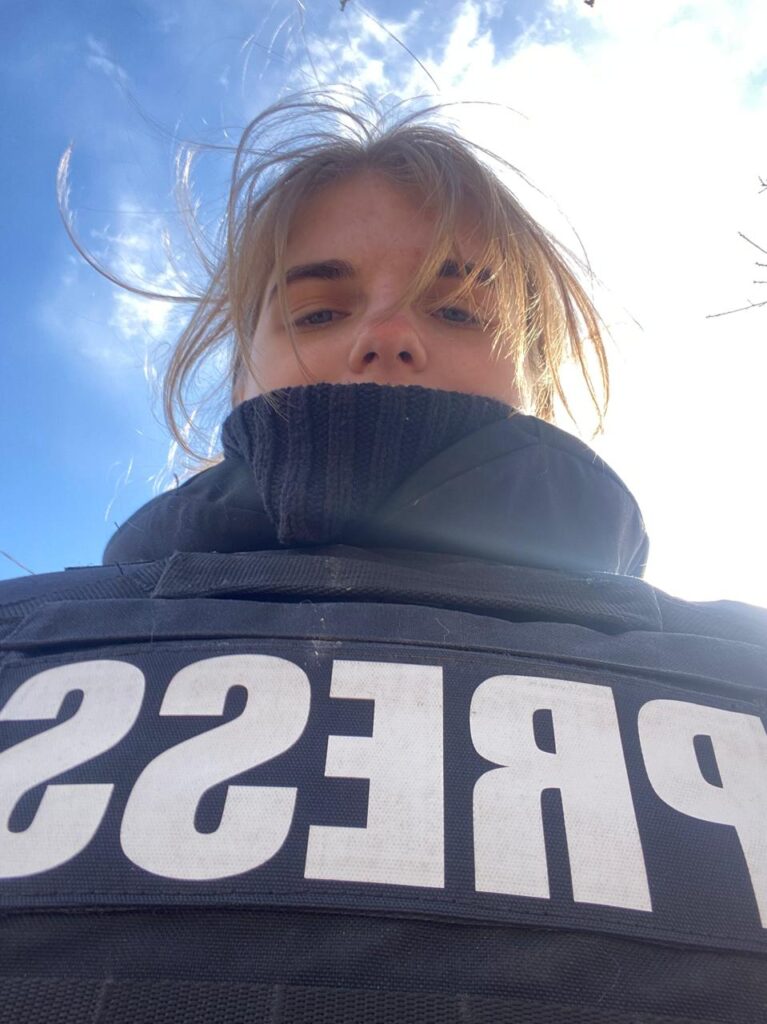
This shelling left a deep scar on me. It wasn’t just the physical proximity—it was the realization that danger doesn’t only strike at work but also at home. Kharkiv has been like this for almost three years. There hasn’t been a single month without attacks, and no part of the city is safe from missiles. It’s a daily reality: you’re walking down the street, and a message appears in monitoring Telegram channels about a missile flying over the city. I’ve had moments where I was in a taxi and had to stop the car to find shelter. The constant stress deeply affected my psychological state, but taking a break from journalism has helped. I feel more stable now and have decided to stay in Kharkiv. I made that choice at the start of the full-scale invasion, and despite everything, I’ve stayed true to it. Filming in Kharkiv is inherently dangerous, especially at impact sites. The Russians often re-attack the same locations, targeting areas where emergency services, law enforcement, and journalists are working. Every assignment carries risks, but it’s part of the job.
I dislike being called a “war journalist” or “military correspondent.” Our work hasn’t fundamentally changed—we still report on what’s happening in our city, in Kharkiv. Military journalists actively go to war zones to document the conflict. We don’t. We live here, and the war unfolds before our eyes every day. This makes the work morally challenging. In any profession where you work with people, the priority is not to harm. When interviewing people at impact sites or even conducting street surveys, you never know if your questions might hurt someone emotionally. What sustains me most is my family. The war has brought us even closer. My mother, who is currently serving as a military officer, has been a pillar of strength. My family’s support has been invaluable in helping me recover.
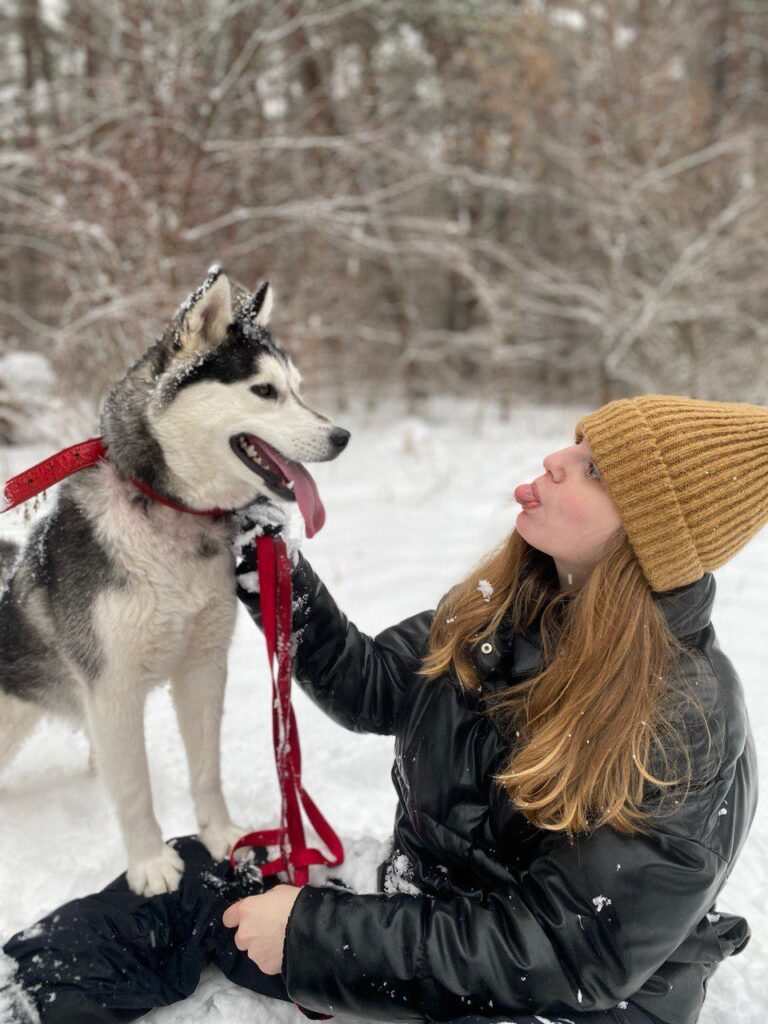
Animals have also been a great comfort. We are very fond of animals and now have four cats rescued from Balakliya and other formerly occupied territories. At the start of the invasion, I also adopted a dog from an abandoned kennel. Caring for them has been therapeutic—it forces me to focus on their needs and keeps me from dwelling on my own pain. Friends and colleagues have also played a vital role. Many came on the first day of the invasion to support us morally and professionally. Their presence and encouragement have been a tremendous help. Our work has always been about informing people about what’s happening around us. Despite the interruptions, risks, and personal costs, we continue because it’s a duty we chose when we entered this profession.
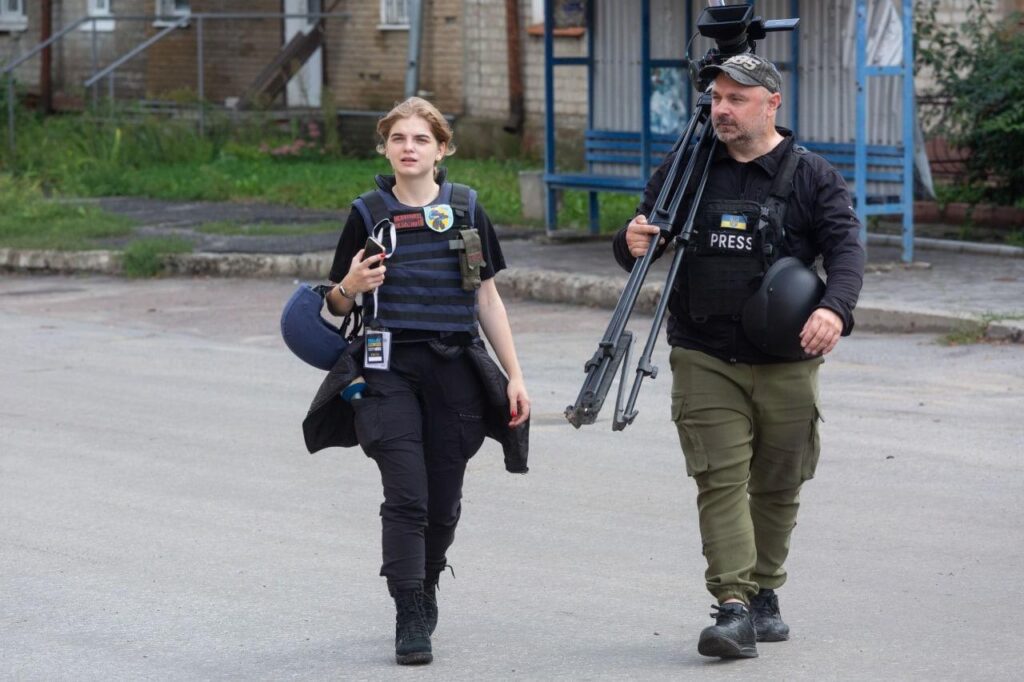
Created as part of the project “Raising awareness among target groups in Ukraine and abroad about Russian war crimes against journalists in 2024 and increasing public pressure for the release of captured journalists”, which is implemented by the National Union of Journalists of Ukraine with support of the Swedish non-profit human rights organization Civil Rights Defenders.

 THE NATIONAL UNION OF
JOURNALISTS OF UKRAINE
THE NATIONAL UNION OF
JOURNALISTS OF UKRAINE
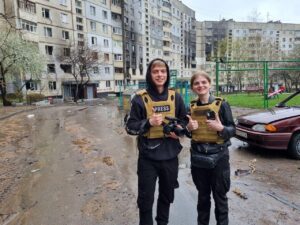
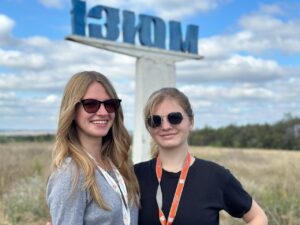
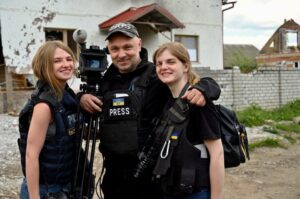
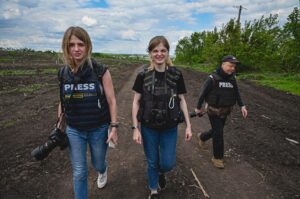
















Discussion about this post